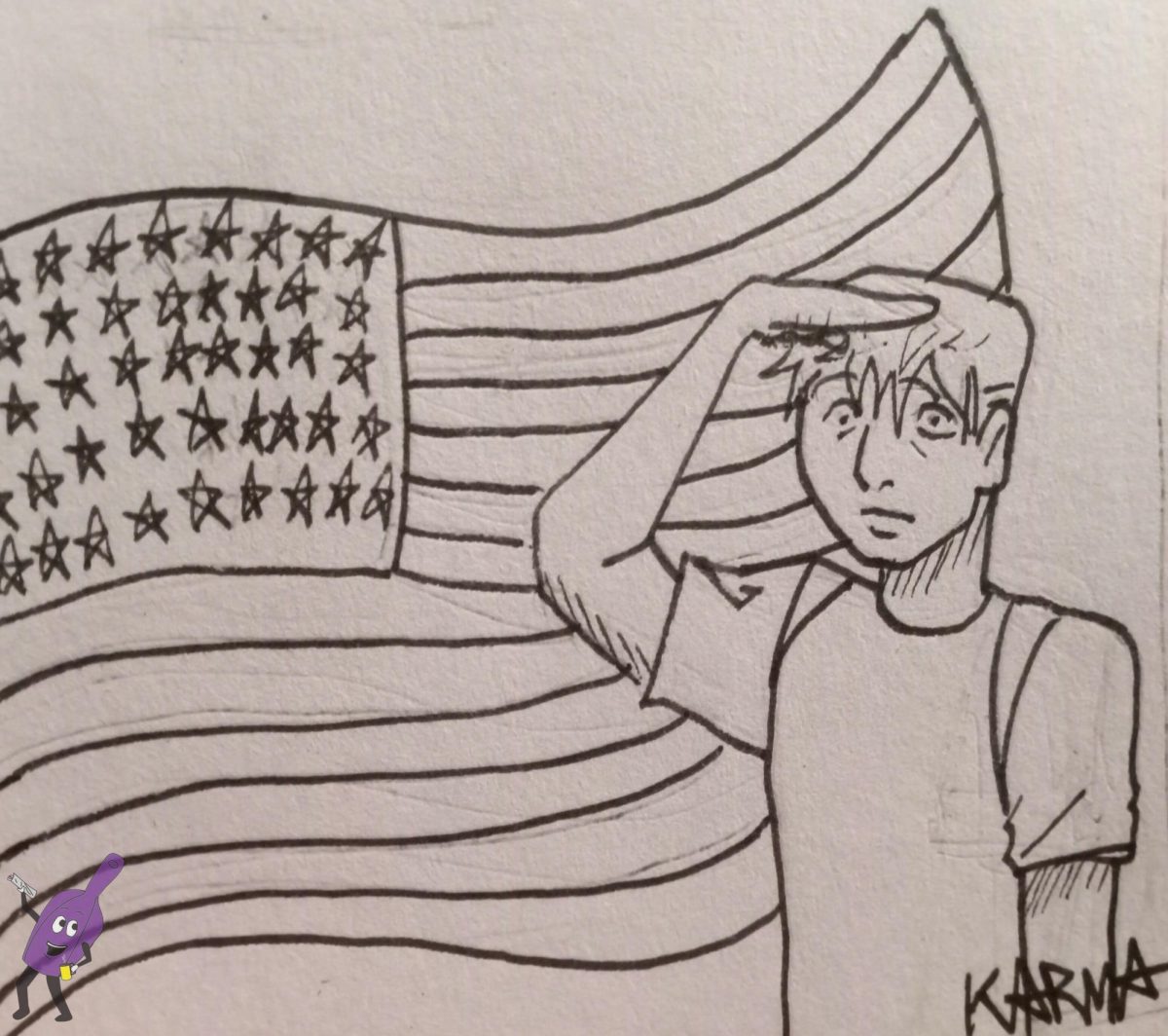On January 23, 2024, an email was sent out to Sentinel students and staff regarding the pledge of allegiance.
Said email stated that “it has been a long time since Sentinel last held the pledge,” and that, from this point on, our school will be “re-engag[ing] in the pledge.” This will be done by playing it over the loudspeakers each morning to accompany second period announcements.
The reason given for this was that it is, technically, required by law for mcps schools to participate. The law in question is relatively new, in 2023. The text clearly states that, though it has become required to recite the pledge by lead of a teacher or over the school intercom system, it is not required for teachers or their students to participate in the recitation.
Additionally it gives those who chose not to participate the ability to “engage in any alternative form of conduct so long as it does not disrupt the work or discipline of the school.”
Considering Sentinel has been out of practice with the pledge for so long, and taking into account the time the law was put into place, what has taken the Sentinel so long and what made them suddenly start again?
An interview with the Sentinel’s current principal, Stephanie Thennis, provides the background and more in depth reasoning behind the making of this decision.
During the interview Thennis claims that though she is relatively new, she “[doesn’t] believe it was that long ago” that the pledge of allegiance was heard in Sentinel’s hallways. Though she does agree that it has been several years, “possibly even well before covid.”
The most logical conclusion, she says, is that, over the years, we have participated in it somewhat sporadically, having “pockets of years it was done and pockets of years it was not done.”
Miss Bathje, the English, journalism, and publications teacher at Sentinel High School, comments that it has “never been recited” in all the years she has worked there: “this is my sixth year.” Additionally, a former student of Sentinel High School also states that during her time she cannot recall having ever said the pledge of allegiance; she graduated in 1988.
Thennis admits that the entire idea of the participation had escaped her mind in the past two years she has been a principal. It wasn’t until someone brought it to her attention that she realized it was a tradition long lost and knew it is better that Sentinel become involved once again.
She was approached by an assistant superintendent of mcps who reminded her that all high schools in Montana are required, by law, to announce the pledge as part of a daily routine. Thennis agreed with this saying that “[she] didn’t know why we weren’t doing it” especially considering it only takes up only ten seconds of our morning announcements.
Even if high schools are not very familiar with the daily usage of the pledge, why send out an email regarding the subject?
“Because I wanted, number one, to let people know why we were starting the pledge, but it’s also important to me for people to know what their rights are.” Thennis holds it in very high importance that both the students and teachers of Sentinel understand their rights as American citizens.
She also stated that “if they have personal beliefs that are not in line with the pledge of allegiance, I believe it’s important that they know they do not have to participate.” Thennis believes that simply starting the habit up again without any prior notice wouldn’t be the right thing to do.
When asked whether or not she personally believes schools should participate in the pledge, Thennis says that, “my beliefs are yes.” She says that this is not due to any personal connection and relation to the military, it only comes out of a place of general respect for our country and those who have, and will in the future, fight for its existence.
The reactions the students had to this change seemed to come in two distinct forms: appreciation and enjoyment that the pledge is once again being said. And a general confusion and feeling a lack of necessity for this tradition.
One student who falls into the first category is Ricky Wagner who says that he “feels very strongly that it should be something that is taught around the school.” He says a large part of this is his having grown up saying the pledge in his previous schools.
He also wishes to respect what his family has done for the military. For him personally, saying the pledge is his way of acknowledging what his family fought for especially because he wants to follow in their footsteps and join the military as well.
He does agree, however, that if one should not wish to participate in the pledge under no circumstances should they be forced to do so.
In contrast to this, two students (who wish to remain anonymous) have very strong feelings regarding the recent reinstatement of the pledge.
They firmly believe that “the pledge of allegiance is horrible.” They especially believe that requiring it across schools is outrageous saying that “It should not be mandated.”
Requiring and having a pledge at all is somewhat concerning as “the only countries who require pledges are ruled by dictators.” They also agree that having an entire written declaration of how much you love your country is rather odd, and in their words, “kind of like a cult.”
Some students remain neutral on the subject. One such individual is student Samuel Rohan-Smith. When questioned on his opinion he says “America,” and when encouraged for further information he added, “ra.”
Reinstating the pledge of allegiance has definitely spurred further conversation among the staff and students of Sentinel. Having confirmation that it was placed back into effect with positive intentions is definitely a good sign and creates a much more welcoming environment for those who want to participate as well as those who do not.
Respecting the rights and decisions of all is always the proper thing to do and the world is better for it.





